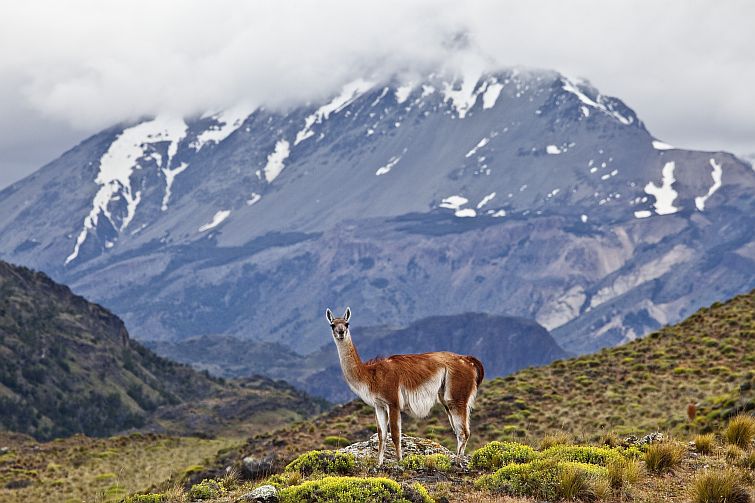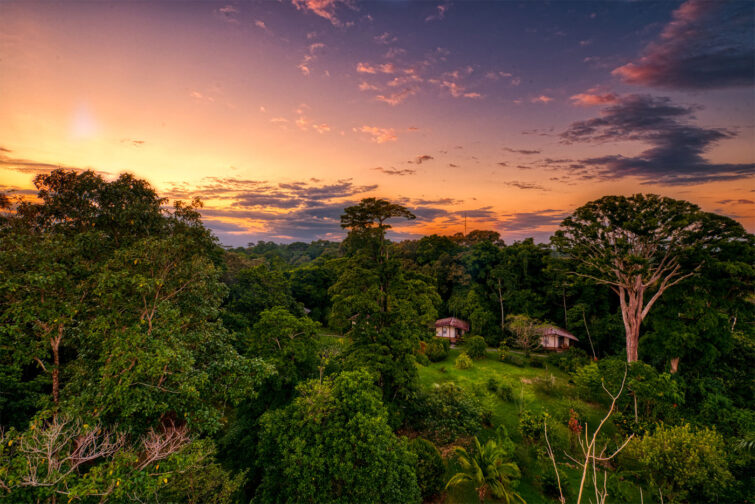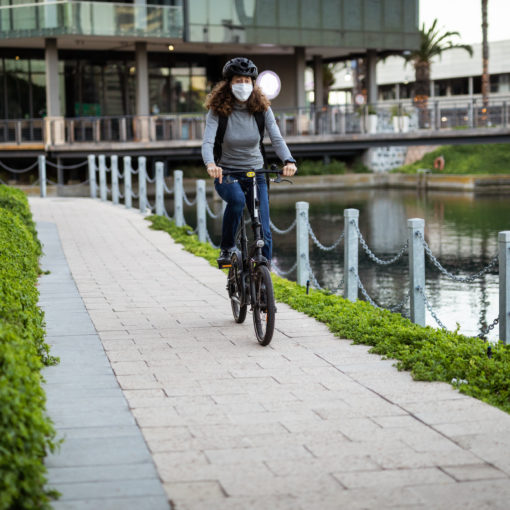Share This Article
‘Why is biodiversity important?’ is a phrase you will probably hear quite often during May with World Bee Day on the 20th and International Day of Biodiversity on the 22nd.
In this blog we want to show you how species have declined across the world and how the tourism industry and travelers can play an active role in protecting the natural world.
How and why have species declined?

According to the World Wildlife Fund’s (WWF) Living Planet Report 2020 there has been an average decline of 68% of mammals, fish, birds, reptiles, and amphibians between 1970 and 2016. Population losses have been greatest in Latin America and the Caribbean with an average decline of 94%. Global freshwater species have also been adversely affected, declining 84% on average.
Let’s put this into context:
- For example, the beloved western monarch butterfly which migrates every winter to California has declined by 99% in the past 40 years.
- There are 16 species on the WWF’s Critically Endangered list
- There are over 30 species on the Endangered list, including Asian Elephants, Chimpanzees and Green Turtles
Scientists across the world are predicting an ‘insect apocalypse’ due to the alarming decline in bees and other pollinators. The main reasons for this are:
- habitat loss due to urban development and intensive farming
- toxic pesticides such as neonicitinoids
- climate change affecting the seasonal growth of plants and trees
- diseases, specifically the varroa mite.
Another area that is sometimes overlooked is our oceans as most of us don’t really get to see what is happening underwater. In the past 20 years 50% of coral reefs have been lost. Fortunately, this is changing due to the increasing number of documentaries such as Oscar-winning ‘My Octopus Teacher’. You can watch this on new streaming service WaterBear , which is the first streaming platform dedicated to the future of our planet.
Why is biodiversity important for human health?

Our world is a delicately balanced ecosystem. We are all intrinsically connected to each other. Even the most insignificant invertebrates in our soil have a role to play and are dependent on each other to survive. But this ecosystem is out of balance. As humans, we are not living in harmony with nature as we do not see ourselves as part of it. We are using more of the world’s resources every year, which are not being replaced fast enough – or at all. Human activity has caused climate change, changes to land use and adoption of harmful chemicals which are harmful to wildlife (as well as humans).
“The loss of biodiversity and the degradation of ecosystems pose a major risk to human survival and development. It falls to all of us to act together, and urgently turn the Earth into a beautiful homeland for all creatures to live in harmony.”
Sir David Attenborough, 2020.
We are also increasing the risk of zoonotic diseases like the coronavirus as wild animals lose their habitats and are more likely to pass on diseases to humans.
You can see the decline in species wherever you live and we must all put greater value on the natural world. If bees and other pollinators were to disappear, we would lose so much of the food that we take for granted: most fruits and vegetables, coffee, some nuts, berries and cacao (who could survive without chocolate?!)
What needs to be done?

Quite simply we need to re-establish the balance of the ecosystem. We have to remember that, if it is to survive, this planet must be healthy for every living being that inhabits it. We must take urgent action against climate change, transform food production and reduce our overall consumption habits by moving to a circular economy model.
Businesses must place a value on ‘natural capital’, ie including a capital value in their balance sheets which represents the natural resources they are using for free – some companies are already doing this. Puma was one of the first companies to publish an environmental profit and loss account (EPL).
What can concerned citizens do in their daily lives:
Here are a few ideas to get you started:
- Avoid palm oil in everyday products like food, household and toiletries
- Choose organic and sustainably farmed food
- Avoid the use of products containing of micro plastic: beauty, cosmetics, toiletries
- Reduce single use plastic which ends up in our oceans
- Respect all living things
- Choose eco-friendly household products which don’t pollute waterways
- Grow pollinator-friendly plants
- Offset your carbon for reforestation projects like this one on Wayaj
- Choose to stay at places that are involved in regenerative tourism (see below for some Wayaj member examples)
Why is biodiversity important for the tourism industry?

The tourism sector is in the business of attracting travelers to visit different places across the world. These destinations are the lifeblood of the industry and it seems obvious that these places should be protected at all costs.
Particularly as a result of the coronavirus pandemic, travelers are attracted to destinations where they can experience the wonders of the natural world. It makes perfect sense for the hospitality industry to play its role in preserving the ecosystems which host them. Indigenous communities should also be respected and involved. Their cultures have always been closely connected to the land and it is second nature to do what is right for a harmonious relationship with the natural world.
Marco Lucero and his colleagues set up Cuidadores de Destinos, a consulting company for destination management organisations in Latin America. They believe that tourism can be a fantastic tool to preserve nature and culture – a means to achieve a deeper purpose than just business as usual. As Marco tells us,
“Destination stewardship organisations like us can play an important role in protecting biodiversity. We advocate for a multispecies approach, beyond humans, understanding that tourism takes place in a web of interdependency and connectivity with nature. We bring the voice of Mother Nature to the table.”
A great example of this approach in action is at Patagonia National Park, in the south of Chile, where Tompkins Conservation is doing a fantastic work rewilding nature. They have managed the destination in a way that fully embraces the voice of nature as a guide to manage their activities.
Wayaj is empowering tourist boards
At Wayaj, we are actively involved in working with destinations through partnerships with tourist boards and hospitality associations. We can support them by setting up carbon offset projects and local impact initiatives which guests can contribute to as part of their stay. We know that the travelers of the post-covid world will be more mindful of the impact of their travels and wanting to play their role in creating a better future.
One example is our partnership with the St Lucia Hospitality and Tourism Association (SLHTA) in the Caribbean. The SLHTA has partnered with Wayaj for the opportunities it presents to bring more awareness to its member properties and initiatives as well as the chance to take part in fighting the climate emergency. We are currently working with them to identify appropriate carbon offset projects.
Regenerative Wayaj hotel members

There are many hoteliers who are going beyond ‘responsible tourism’ and aiming to leave their destination better than they found it. This approach is called ‘regenerative tourism’.
There are an exciting number of hotels in the Wayaj portfolio who follow ‘regenerative’ principles and are advocates for stewardship and conservation. They really do understand why biodiversity is important for the future of the tourism industry. Here is a small selection:
Tranquilo Bay Eco Adventure Lodge in Panama is run by Renée H. Kimball and she took part in our November Responsible Travel Makers episode, ‘What is Eco Adventure Tourism?’. Renée quoted the New York Times, “Sustainable tourism is sort of a low bar. At the end of the day, it’s just not making a mess of the place. Regenerative tourism says, let’s make it better for future generations.” Renée herself has been involved in the conservation of the Bocas del Toro region for many years. At Tranquilo Bay, they have set up lists to monitor birds and other wildlife as part of an environmental impact study. They have noted 230 species of birds around the resort itself and then taken that list up to 554 when you add in excursions further afield.
Finca Rosa Blanca Coffee Farm & Inn in Costa Rica is set in 30 acres of reforested lands, and has a deep sense of community. Through the inn and the organic coffee farm they support conservation, reduced biological impact, and regeneration. Their focus is on reforestation and organic agriculture to reduce their ecological footprint and mitigate their impact on climate change. Over the last 25 years, they have planted more than 5,000 native trees and were designated one of the first carbon-neutral hotels in Costa Rica.
Kokomo Private Island in Fiji is a place where they are committed to driving positive change on their island home. They’ve made it their priority to connect and invest in the island, the community and the environment that surround them. They even have 3 marine biologists who invite guests to take part in projects like new coral reef planting as well as learning about ocean conservation.
Fivelements Retreat in Bali use ancient Balinese principles to guide their approach to sustainability combined with international best practices. They have strived to create the minimum impact on the ecosystem around them by adopting regenerative design for all its buildings. This approach involves assessing site sensitivity and natural habitat as well as local customs and traditions.
Sources:





